
Salima: The Gateway to Lake Malawi
Nestled on the western shore of Lake Malawi, Salima is a captivating destination that promises both relaxation and adventure. Known for its stunning beaches and clear waters, Salima is a perfect spot for those looking to unwind by the lake or partake in water activities. The town is a blend of local culture and natural beauty, offering a unique experience for every traveler. Salima is famous for its proximity to Lake Malawi National Park, a UNESCO World Heritage site. Visitors can explore the diverse aquatic life, including the colorful cichlid fish that are native to the lake. The park is also home to a variety of birds and other wildlife, making it a haven for nature lovers and birdwatchers. The local markets in Salima are vibrant and bustling with activity, providing tourists with a chance to experience Malawian culture firsthand. From handmade crafts to fresh produce, the markets are a sensory delight. Don't miss the chance to try local dishes such as nsima and chambo fish, which are staples in Malawian cuisine. Salima also serves as a gateway to other attractions in Malawi, including the scenic Nkhotakota Wildlife Reserve and the historical town of Dedza. Whether you're looking to explore the natural wonders of Lake Malawi or immerse yourself in local culture, Salima offers a little something for everyone.
Local tips in Salima
- Visit in the dry season (May to October) for the best weather and clearer views of the lake.
- Don't miss out on a boat tour to explore the islands and see the colorful cichlid fish.
- Carry Malawian Kwacha as local markets and small shops may not accept credit cards.
- Try to learn a few basic Chichewa phrases; locals appreciate the effort and it can enhance your experience.
- Book accommodations in advance, especially during peak travel seasons.
Salima: The Gateway to Lake Malawi
Nestled on the western shore of Lake Malawi, Salima is a captivating destination that promises both relaxation and adventure. Known for its stunning beaches and clear waters, Salima is a perfect spot for those looking to unwind by the lake or partake in water activities. The town is a blend of local culture and natural beauty, offering a unique experience for every traveler. Salima is famous for its proximity to Lake Malawi National Park, a UNESCO World Heritage site. Visitors can explore the diverse aquatic life, including the colorful cichlid fish that are native to the lake. The park is also home to a variety of birds and other wildlife, making it a haven for nature lovers and birdwatchers. The local markets in Salima are vibrant and bustling with activity, providing tourists with a chance to experience Malawian culture firsthand. From handmade crafts to fresh produce, the markets are a sensory delight. Don't miss the chance to try local dishes such as nsima and chambo fish, which are staples in Malawian cuisine. Salima also serves as a gateway to other attractions in Malawi, including the scenic Nkhotakota Wildlife Reserve and the historical town of Dedza. Whether you're looking to explore the natural wonders of Lake Malawi or immerse yourself in local culture, Salima offers a little something for everyone.
When is the best time to go to Salima?
Iconic landmarks you can’t miss
Sigelege Beach Resort
Discover tranquility and adventure at Sigelege Beach Resort, your perfect retreat on the shores of Lake Malawi's Senga Bay.
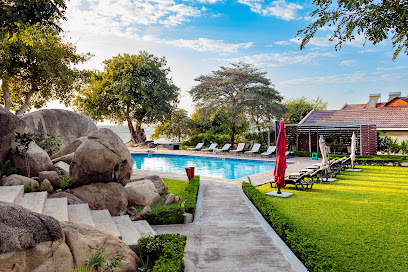
Blue Waters Lake Resort by Serendib
Experience the serenity of Blue Waters Lake Resort, a perfect blend of relaxation and adventure by the shores of Lake Malawi.
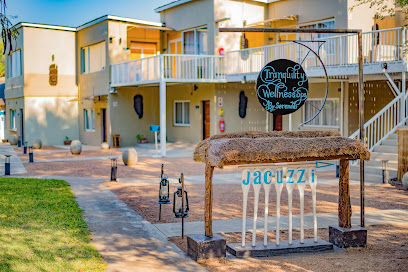
Blue Zebra Island Lodge
Discover the serene beauty of Blue Zebra Island Lodge on Nankoma Island, a perfect blend of luxury and nature in Lake Malawi.
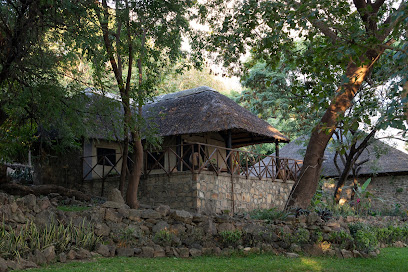
Kabumba Hotel
Discover tranquility and adventure at Kabumba Hotel, where stunning lake views and local charm create the perfect getaway in Salima.

Lakeside Hotel
Experience the tranquil beauty of Lake Malawi at Lakeside Hotel, where comfort meets adventure in a stunning lakeside setting.
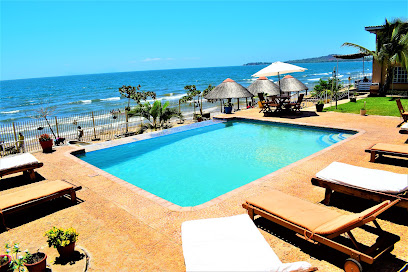
Senga Bay
Experience the tranquil beauty and vibrant culture of Senga Bay on the shores of Lake Malawi, where adventure and relaxation await.
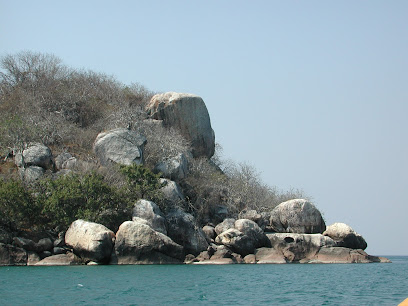
Matundu Cottage Beach Resort
Experience the beauty of Lake Malawi at Matundu Cottage Beach Resort, where comfort meets nature in a tranquil setting.
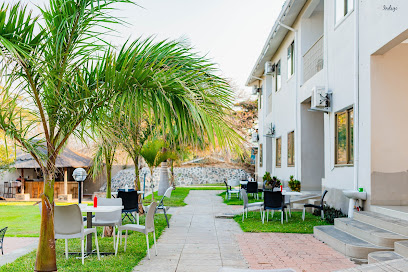
Silver Sands Holiday Resort
Experience the serene beauty and vibrant activities at Silver Sands Holiday Resort, a tropical paradise near the Malary Islands in Maganaa.
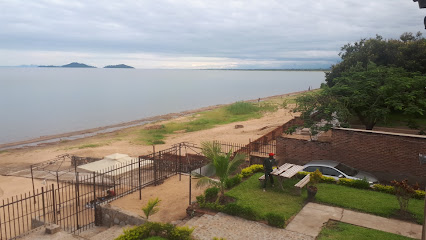
Kambiri Beach By Serendib
Discover the beauty and tranquility of Kambiri Beach By Serendib, a perfect retreat on the shores of Lake Malawi with stunning views and delightful cuisine.

Kuti Wildlife Reserve
Discover the enchanting Kuti Wildlife Reserve, a haven for wildlife enthusiasts in Malawi, where nature and adventure come together in perfect harmony.
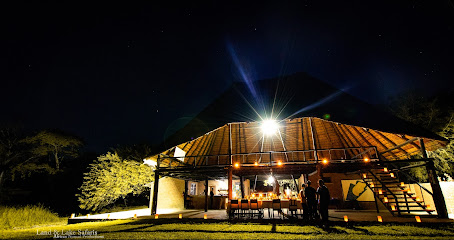
Main Stream Beach Villa (Salima)
Experience the tranquility of Main Stream Beach Villa in Senga Bay, where modern comforts meet the natural beauty of Lake Malawi.
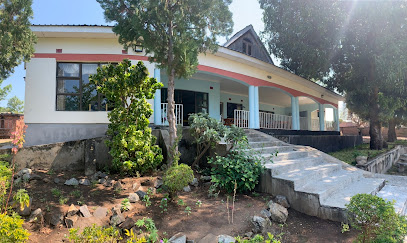
Wheelhouse Marina
Experience the serene beauty of Senga Bay at Wheelhouse Marina, where nature meets comfort for the perfect getaway.

Kumbali Lake Retreat
Experience the serene beauty and adventure at Kumbali Lake Retreat, a picturesque lodge by Senga Bay in Malawi, perfect for nature lovers and travelers alike.

Joma Adventure Lodge
Experience the tranquility of Joma Adventure Lodge in Lifuwu village, your gateway to adventure and relaxation by the shores of Lake Malawi.
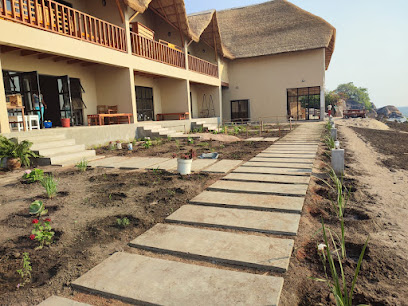
Kuti Wildlife Reserve Main Gate
Discover the natural splendor of Kuti Wildlife Reserve, a premier wildlife refuge in Malawi, rich in biodiversity and adventure.
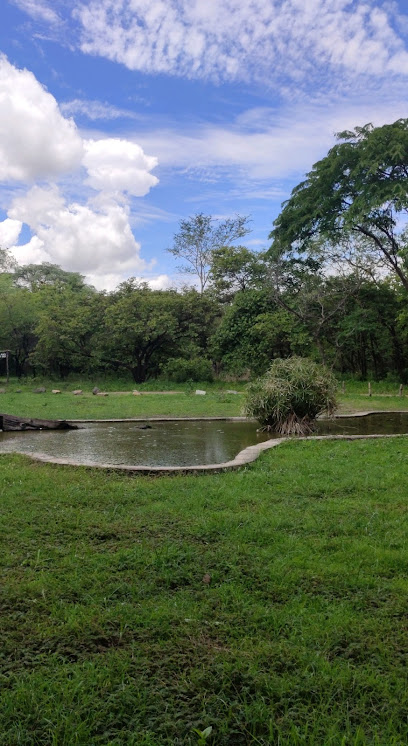
Unmissable attractions to see
Kuti Wildlife Reserve Main Gate
Explore Kuti Wildlife Reserve Main Gate, the gateway to Malawi's stunning wildlife and breathtaking landscapes, perfect for nature lovers and adventure seekers.
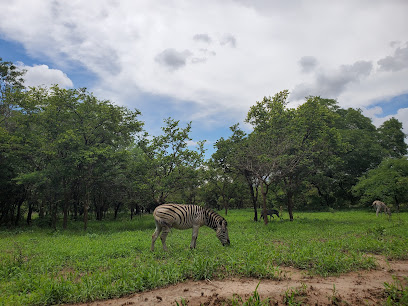
Malawi
Explore the breathtaking landscapes and rich culture of Malawi, the 'Warm Heart of Africa', where adventure and hospitality await.
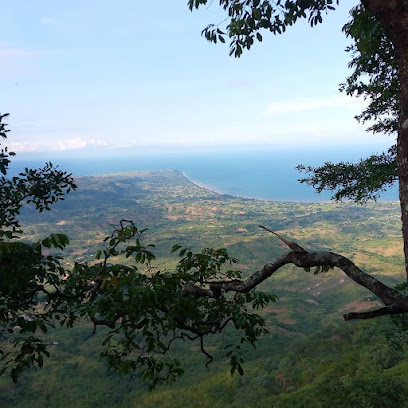
Asili Garden
Discover the serene charm of Asili Garden, a botanical paradise in Malawi that invites relaxation and nature exploration.

Namalenje Island, Malawi
Experience the tranquil beauty of Namalenje Island in Malawi, where nature and culture blend seamlessly for an unforgettable getaway.

Limbo chenyama
Experience the tranquility of Limbo Chenyama, a serene garden in Salima, Malawi, perfect for relaxation and nature lovers alike.

Salimo
Discover the breathtaking hiking trails and stunning landscapes of Salimo, Malawi, a paradise for nature lovers and outdoor enthusiasts.

Lizard Island
Explore the natural wonders of Lizard Island in Senga, Malawi – a paradise for snorkeling, diving, hiking, and relaxation amidst breathtaking landscapes.

Local Tour Guider
Explore the rich culture and breathtaking landscapes of Malawi at Local Tour Guider, where every tour reveals the beauty of the local heritage.

Salima Community Grounds
Experience the lush beauty and vibrant culture of Salima Community Grounds, a tranquil park perfect for relaxation and recreation in Malawi.
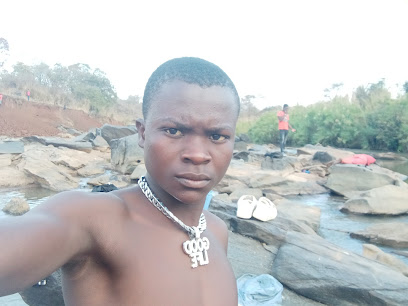
Tanyozeka Irrigation Scheme
Experience the innovative Tanyozeka Irrigation Scheme in Salima, Malawi, where agriculture meets sustainability in a stunning natural setting.

Talima Farm
Experience the natural beauty and tranquility of Talima Farm, a picturesque park in Lifisi, perfect for relaxation and outdoor activities.
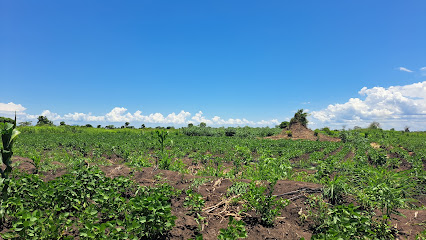
Chikombe Fishing village
Discover the charm of Chikombe Fishing Village, where local culture meets stunning lakeside beauty in the heart of Malawi.

Kammera Green Acres-Woodlands
Discover the serene beauty of Kammera Green Acres-Woodlands in Salima, a perfect park for relaxation and nature exploration.

King’s Bay
Explore the breathtaking beauty of King's Bay in Maganaa, Malawi, a perfect blend of adventure and relaxation by the tranquil waters.

Essential places to dine
Kips' Express
Discover Kips' Express in Salima: A culinary haven offering delightful local and international dishes in a warm and welcoming atmosphere.
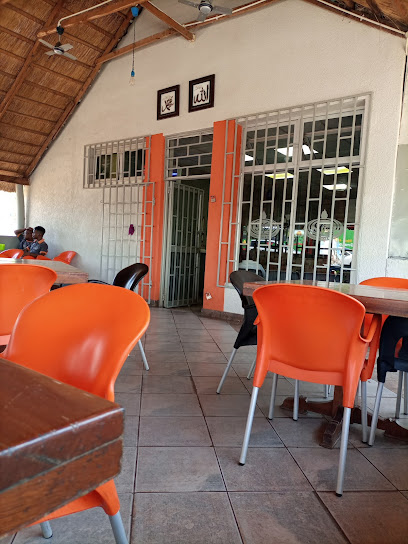
Village Plaza Lodge
Experience authentic Malawian cuisine at Village Plaza Lodge—where every dish tells a story and every visit feels like home.
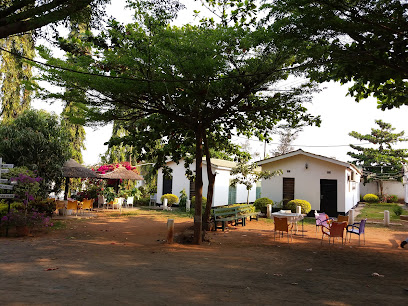
Twinkles Diner
Discover delightful dishes at Twinkles Diner, Salima's cozy restaurant blending local flavors with international favorites.
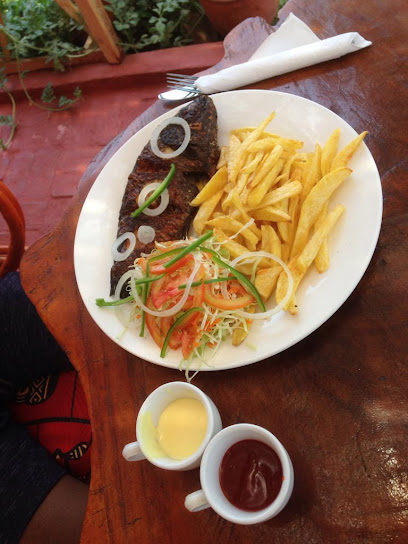
LAZY DAY RESTAURANT AND JUICE BAR
Experience fresh local cuisine and refreshing drinks at Lazy Day Restaurant & Juice Bar in scenic Senga Bay.
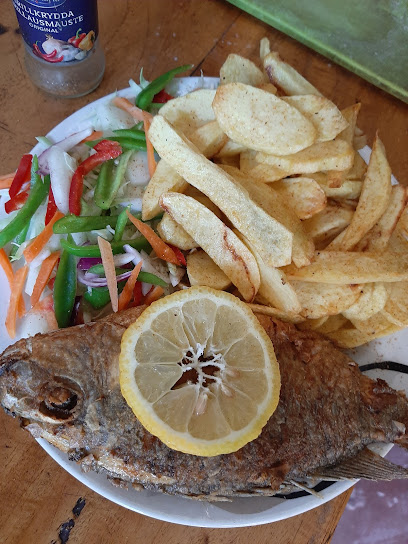
Pizza Chalet Malawi
Experience delightful pizza and local Malawian dishes at Pizza Chalet in Salima - a must-visit culinary gem.
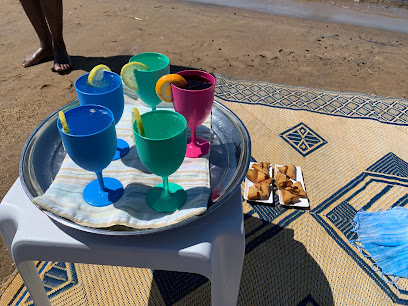
Kips Salima Express Fast Food Service
Experience authentic Malawian cuisine at Kips Salima Express - a delightful fast food restaurant in the heart of Salima.
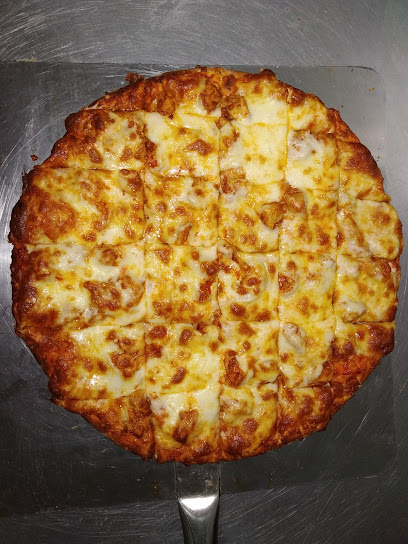
Malik Fast Food
Experience local cuisine at Malik Fast Food, where delicious fast food meets vibrant atmosphere in the heart of the city.
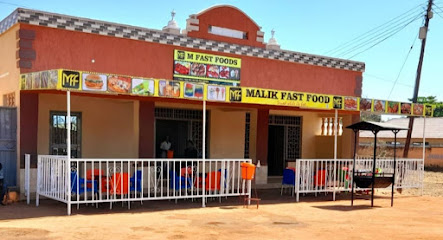
Kumadzi Restaurant
Experience authentic Malawian flavors at Kumadzi Restaurant in Salima – a culinary gem offering delicious local cuisine in a warm setting.
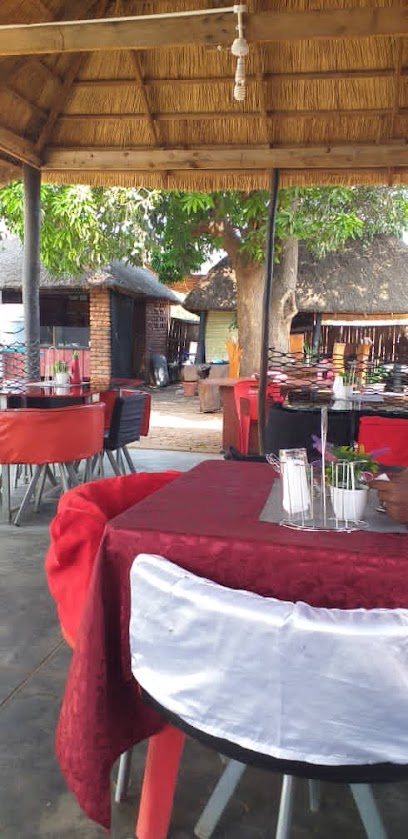
Jole Restaurant
Experience the rich flavors of Malawi at Jole Restaurant in Salima – where authentic cuisine meets warm hospitality.

Eden Guest House and Restaurant
Discover comfort and authentic Malawian flavors at Eden Guest House and Restaurant in beautiful Salima.
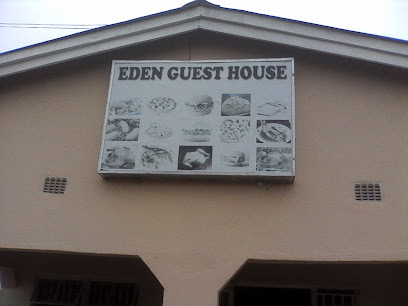
Namalenje Restaurant
Discover authentic Malawian cuisine at Namalenje Restaurant—where every dish tells a story.

Kanjinga Town Lodge
Discover comfort and local charm at Kanjinga Town Lodge in Salima - your perfect getaway near Lake Malawi.

Salena Resturant
Experience authentic African cuisine at Salena Restaurant in Salima—where every dish is a celebration of Malawi's rich culinary heritage.
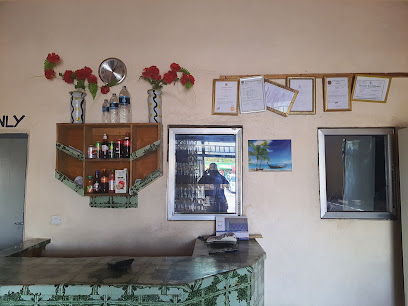
Pier Restaurant
Experience exquisite local flavors and stunning lakeside views at Pier Restaurant in Senga Bay.

Avon golden lodge
Discover the rich flavors of Malawi at Avon Golden Lodge in Salima – where local meets international cuisine in a cozy setting.

Markets, malls and hidden boutiques
SANA CASH N CARRY
Discover the vibrant offerings of SANA CASH N CARRY, a grocery store in Salima blending local flavors with convenience for all travelers.
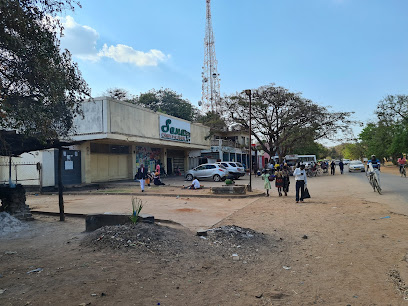
Mujibur Enterprise
Discover Salima’s beauty on two wheels at Mujibur Enterprise, the ultimate bicycle store for tourists in Malawi.

Tutlas Super save
Explore Tutlas Super Save in Salima for a taste of local life and a wide selection of groceries that reflect Malawi's vibrant culture.
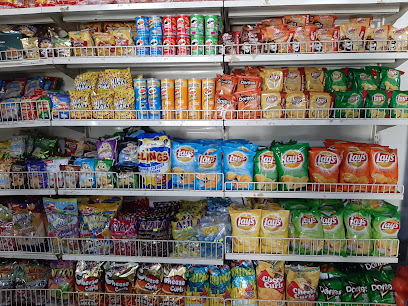
Msangu Trading
Explore Msangu Trading Mall: Salima's vibrant hub for shopping, dining, and cultural experiences in Malawi.
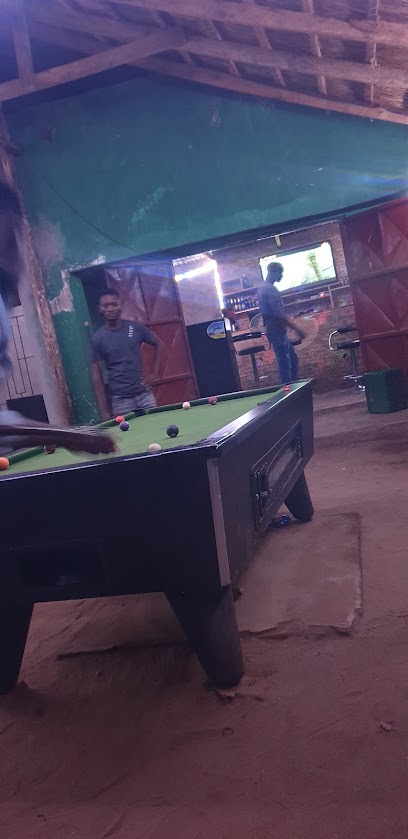
Chipiku Plus
Explore Chipiku Plus in Salima for a delightful shopping experience, featuring local and international grocery products to meet all your needs.

PEP Salima
Explore PEP Salima for affordable family clothing, from stylish outfits to adorable baby wear, in the heart of Malawi.

Peoples Supermarket
Explore the rich diversity of local and international products at Peoples Supermarket in Salima, a must-visit for tourists seeking authentic experiences.
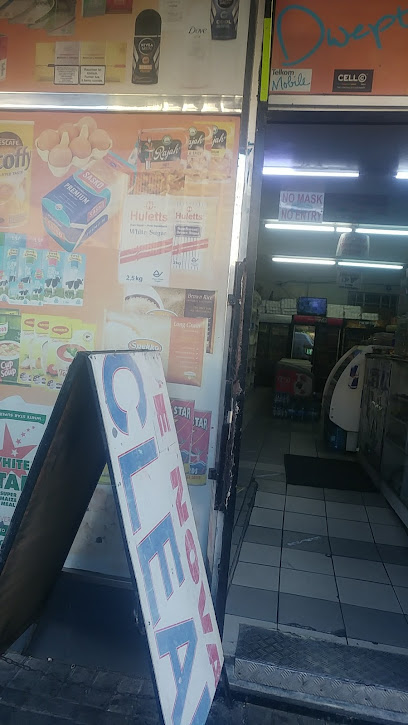
Okay Consumer
Explore cutting-edge electronics and local Malawian innovation at Okay Consumer in Salima, your ultimate tech destination.
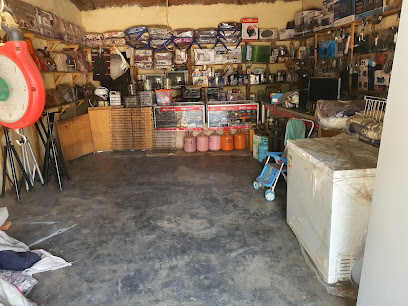
Chipiku Stores
Discover the essence of local shopping at Chipiku Stores in Salima, Malawi, where variety meets community spirit.
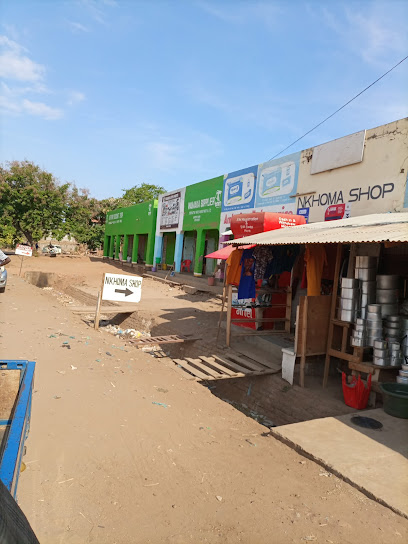
Nsangu Market
Discover the vibrant culture and local flavors at Nsangu Market in Salima, Malawi, a bustling hub for shopping and authentic experiences.
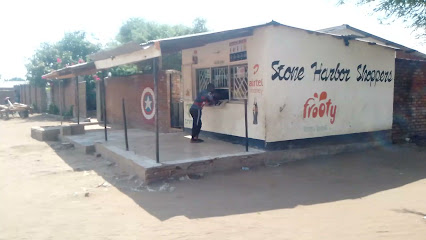
Kariakoo Complex
Explore the lively Kariakoo Complex in Salima, a shopping mall that offers a vibrant taste of local culture and commerce.
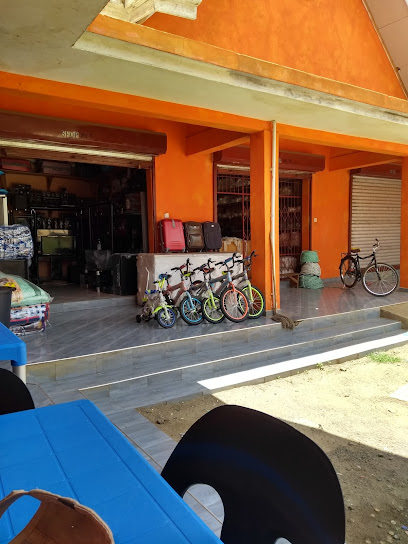
Salima
Explore the vibrant market of Salima, where local culture, delicious cuisine, and stunning lake views come together for an unforgettable experience.

Masina Hardware
Explore Masina Hardware in Salima for an extensive range of quality tools and supplies, perfect for all your DIY projects.

FURAHA SEED PLUS TAKUMANA
Explore Salima's local charm at FURAHA SEED PLUS TAKUMANA, your essential stop for local products and everyday necessities.
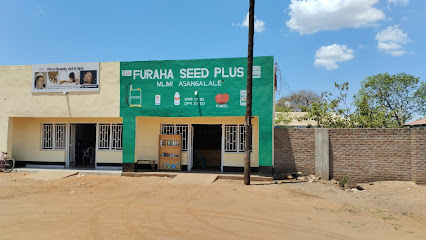
All in one hardware
Explore All in One Hardware in Salima for all your building materials needs, offering quality products and top-notch service in one convenient location.

Essential bars & hidden hideouts
Dzalasapo Crescent Lodge
Discover the lively atmosphere and local flavor at Dzalasapo Crescent Lodge, the heart of Salima's nightlife.
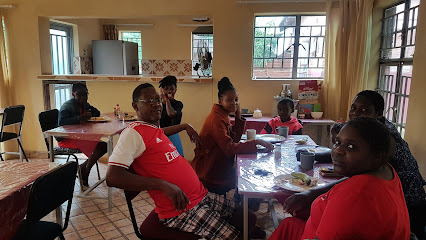
Culture Club International Salima
Discover the heart of Salima's nightlife at Culture Club International, where great music and vibrant energy come alive every night.
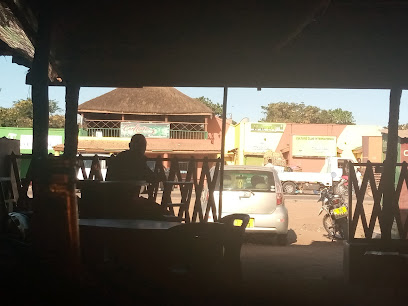
Discorium fast food
Discover fast and flavorful local cuisine at Discorium Fast Food, the perfect cafe stop for tourists in Salima.
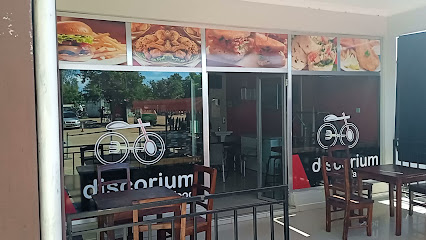
Kumadzi Restaurant
Experience authentic Malawian cuisine at Kumadzi Restaurant in Salima, where local flavors and warm hospitality come together.
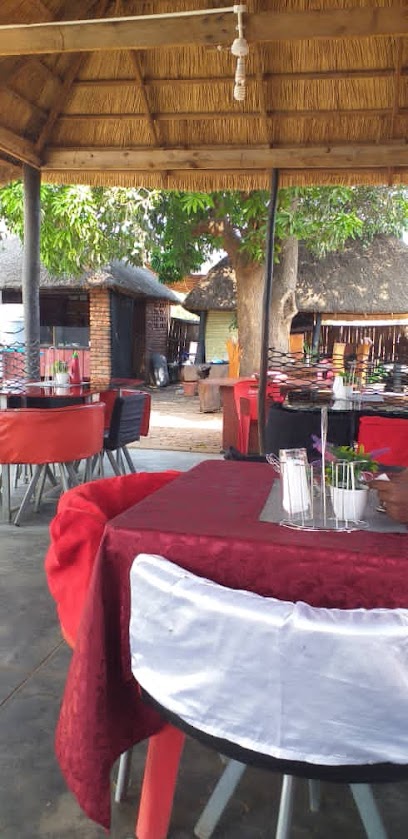
Jole Restaurant
Discover the authentic tastes of Malawi at Jole Restaurant in Salima, where local ingredients meet warm hospitality.

Indo Hot Spot
Experience the lively atmosphere and local charm at Indo Hot Spot, Salima's premier bar for relaxation and entertainment.
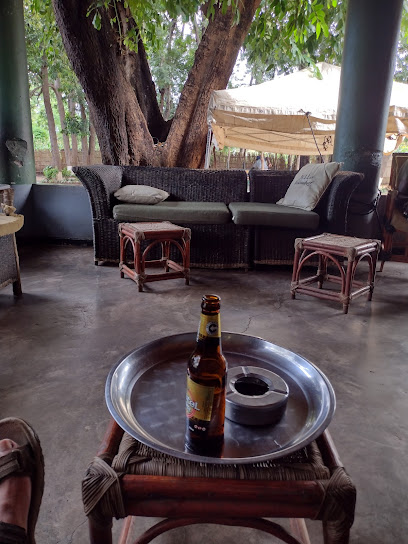
Tom's Bar
Experience the perfect blend of relaxation and stunning views at Tom's Bar in Senga Bay, Malawi, a must-visit spot for every traveler.
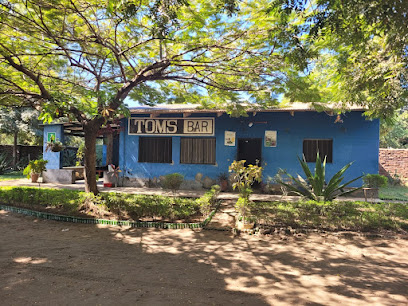
Tonse Liquor Shop
Discover the refreshing ambiance of Tonse Liquor Shop in Salima, Malawi, where great drinks and a relaxing atmosphere await.
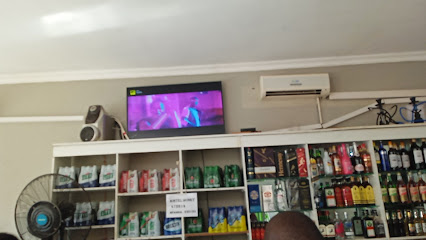
Zinziri Centre
Experience the vibrant culture and warm hospitality at Zinziri Centre, the perfect bar for relaxation in Salima, Malawi.
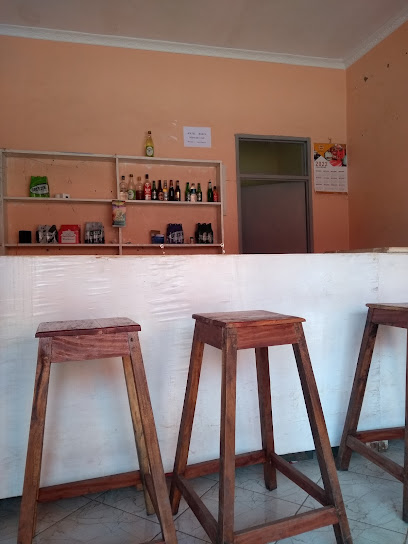
Aunt Jane's Liquor Bar
Discover the lively atmosphere and refreshing drinks at Aunt Jane's Liquor Bar in Salima, your go-to spot for a taste of local nightlife.
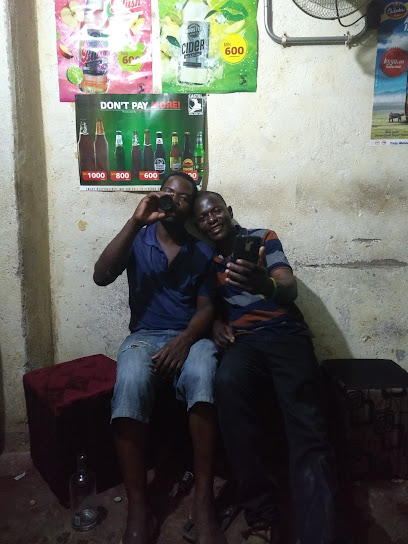
Gg Ship Inn Bar
Experience the vibrant nightlife and local culture at Gg Ship Inn Bar in Salima, a perfect spot for relaxation and socializing by Lake Malawi.
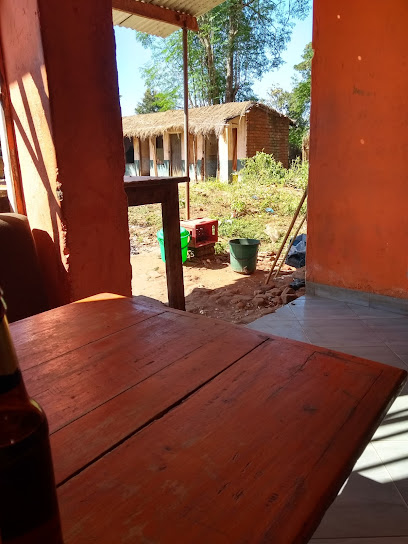
Loga Bar
Discover the energetic vibe of Loga Bar in Salima, where local culture meets refreshing drinks and lively entertainment.
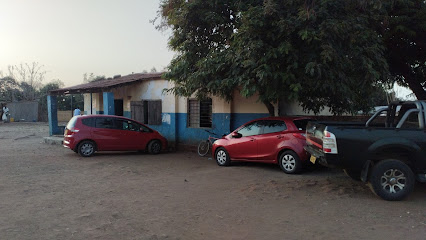
Twi Liquor
Discover the vibrant nightlife at Twi Liquor in Salima, Malawi, where locals and travelers come together for great drinks and unforgettable experiences.

Kamona
Discover the lively atmosphere and local flavors at Kamona, Salima's premier bar for an unforgettable nightlife experience.

Salima
Discover the flavors of Salima, Malawi: a vibrant town offering rich culinary experiences and breathtaking landscapes by Lake Malawi.

Local Phrases
-
- HelloMoni
[moh-nee] - GoodbyeTionana
[tee-oh-nah-nah] - YesEya
[eh-yah] - NoAyiyi
[ah-yee-yee] - Please/You're welcomeChonde
[chohn-day] - Thank youZikomo
[zee-koh-moh] - Excuse me/SorryPepani
[peh-pah-nee] - How are you?Ulendo wakukaya bwanji?
[oo-lehn-doh wah-koo-kah-yah bwan-jee] - Fine. And you?Zabwino. Koma inu?
[zah-bwee-noh. koh-mah ee-noo] - Do you speak English?Mukudziwa chiyankhulo cha Chingerezi?
[moo-koo-dzee-wah chee-yahn-koo-loh chah ching-geh-reh-zee] - I don't understandSindingadziwe
[seen-deen-gah-dzee-way]
- HelloMoni
-
- I'd like to see the menu, pleaseNdimakudziwani menu, chonde
[ndee-mah-koo-dzee-wah-nee meh-noo, chohn-day] - I don't eat meatSindidya nyama
[seen-dee-dyah nyah-mah] - Cheers!Zokonda!
[zoh-kohn-dah] - I would like to pay, pleaseNdimafuna kulipira, chonde
[ndee-mah-foo-nah koo-lee-pee-rah, chohn-day]
- I'd like to see the menu, pleaseNdimakudziwani menu, chonde
-
- Help!Chonde!
[chohn-day] - Go away!Pitani!
[pee-tah-nee] - Call the Police!Pangani Mavuto!
[pahn-gah-nee mah-voo-toh] - Call a doctor!Pangani dokotala!
[pahn-gah-nee doh-koh-tah-lah] - I'm lostNdine ndikukhala pakati
[ndee-neh ndee-koo-khah-lah pah-kah-tee] - I'm illNdili ndikhala wabodza
[ndee-lee ndee-khah-lah wah-bohd-zah]
- Help!Chonde!
-
- I'd like to buy...Ndimafuna kukhara...
[ndee-mah-foo-nah koo-khah-rah] - I'm just lookingNdikuyembekezera
[ndee-koo-yehm-beh-keh-zeh-rah] - How much is it?Ndi zingati?
[ndee zing-gah-tee] - That's too expensiveIzi ndizokonzeka kwambiri
[ee-zee ndee-zoh-kohn-zeh-kah kwahm-bee-ree] - Can you lower the price?Mukhoza kusintha ndalama?
[moo-koh-zah koo-seen-thah ndah-lah-mah]
- I'd like to buy...Ndimafuna kukhara...
-
- What time is it?Za nthawi yoti ndi nthawi yotani?
[zah n-tah-wee yoh-tee ndee n-tah-wee yoh-tah-nee] - It's one o'clockNdi nthawi yamodzi
[ndee n-tah-wee yah-moh-dzee] - Half past (10)Ndi nthawi yomutu
[ndee n-tah-wee yoh-moo-too] - MorningUsiku
[oo-see-koo] - AfternoonMawa
[mah-wah] - EveningMawa
[mah-wah] - YesterdayNkamubweretsa
[n-kah-moo-bweh-reh-tsah] - TodayLero
[leh-roh] - TomorrowMawa
[mah-wah] - 1Moja
[moh-jah] - 2Ziwiri
[zee-wee-ree] - 3Zitatu
[zee-tah-too] - 4Zinayi
[zee-nah-yee] - 5Zitsamba
[zee-tsahm-bah] - 6Zisanu
[zee-sah-noo] - 7Ziwala
[zee-wah-lah] - 8Ziwanda
[zee-wahn-dah] - 9Zizukulu
[zee-zoo-koo-loo] - 10Tenthawi
[teen-tah-wee]
- What time is it?Za nthawi yoti ndi nthawi yotani?
-
- Where's a/the...?Kwali kuti...?
[kwah-lee koo-tee] - What's the address?Adilesi yoti ndi yotani?
[ah-dee-leh-see yoh-tee ndee yoh-tah-nee] - Can you show me (on the map)?Mukhoza kundipanga (nthawi ya map)?
[moo-koh-zah koon-dee-pah-ngah (n-tah-wee yah map)] - When's the next (bus)?Tidzabweretsatu kanthawi yomweyo?
[tee-dzah-bweh-reh-tsah-too kahn-tah-wee yoh-mweh-yoh] - A ticket (to ....)Chithandizo (kutali...)
[chee-than-dee-zoh koo-tah-lee]
- Where's a/the...?Kwali kuti...?
History of Salima
-
The area now known as Salima has been inhabited for centuries, primarily by the Chewa people. These early settlers lived in scattered villages and were engaged in fishing, farming, and trade. The Chewa culture, characterized by its vibrant dances and elaborate masks, still plays a significant role in the community's cultural identity.
-
During the late 19th century, European missionaries and colonial administrators began to establish their presence in the region. The Livingstonia Mission, founded by Scottish missionaries, played a pivotal role in introducing Christianity and Western education to the local population. This period also saw the construction of some of the earliest infrastructure in Salima, including schools and health facilities.
-
Salima’s proximity to Lake Malawi made it a significant location during the East African slave trade. Slave traders used the lake's waterways to transport enslaved individuals to the coast for shipment to various parts of the world. The remnants of this dark period are still evident in some of the local folklore and oral histories passed down through generations.
-
In the early 20th century, the British colonial government invested in the development of infrastructure in Salima. Roads, railways, and ports along Lake Malawi were constructed to facilitate the extraction and export of natural resources. This period of development helped lay the foundation for Salima’s economic activities and connectivity within the region.
-
Malawi gained independence from British colonial rule in 1964, and Salima, like many other parts of the country, embarked on a path towards modernization. The post-independence era saw significant investments in education, healthcare, and economic development. Salima's strategic location along the shores of Lake Malawi has made it a focal point for tourism and commerce.
-
Salima is renowned for its cultural festivals that celebrate the rich heritage of the Chewa people. The Gule Wamkulu, or 'Great Dance', is one of the most notable cultural expressions, featuring masked dancers who perform intricate and symbolic dances. These festivals attract visitors from all over the world and provide a glimpse into the vibrant traditions of the local community.
-
Established in 1980, Lake Malawi National Park, which encompasses part of Salima, is a UNESCO World Heritage Site known for its stunning biodiversity and crystal-clear waters. The park is home to a variety of fish species, many of which are found nowhere else in the world. This natural treasure has become a major attraction for both ecotourists and researchers.
Salima Essentials
-
Salima is accessible primarily via road. The nearest international airport is Kamuzu International Airport in Lilongwe, approximately 120 kilometers away. From Lilongwe, you can take a bus, hire a taxi, or rent a car to reach Salima. Buses and minibuses (known locally as 'matolas') are available at the Lilongwe Bus Terminal and provide a budget-friendly option. The journey typically takes around 2 to 3 hours by road.
-
Within Salima, transportation options include taxis, minibuses, and bicycle taxis (commonly called 'kabaza'). Minibuses are the most common and affordable mode of transport for short distances. For more convenience, taxis can be hired for the day or for specific trips. Renting a car is also an option, and it offers the flexibility to explore the surrounding areas at your own pace.
-
The official currency in Malawi is the Malawian Kwacha (MWK). Credit cards are accepted in some hotels, restaurants, and larger shops, but it is advisable to carry cash, especially when visiting smaller establishments and rural areas. ATMs are available in Salima, but it is wise to withdraw sufficient cash in Lilongwe to ensure you have enough funds for your stay.
-
Salima is generally a safe destination for tourists. However, it is advisable to take standard precautions, such as avoiding walking alone at night in unfamiliar areas and keeping an eye on your belongings in crowded places. Areas with higher crime rates targeting tourists are relatively few, but it is best to stay vigilant, especially in bus terminals and markets.
-
In case of emergency, dial 997 for police assistance or 998 for medical emergencies. Salima has local police stations and medical facilities available. It is strongly recommended to have travel insurance that covers medical emergencies. For minor health issues, there are pharmacies in the town where you can purchase over-the-counter medications.
-
Fashion: Do dress modestly, especially when visiting religious sites and rural areas. Avoid wearing revealing clothing. Religion: Do respect local customs and traditions. Always ask for permission before taking photos of religious sites and ceremonies. Public Transport: Do be respectful and offer your seat to elderly passengers. Avoid eating or drinking on public transport. Greetings: Do greet people with a handshake and a friendly smile. Using the local greeting 'Moni' is appreciated. Eating & Drinking: Do try local delicacies and accept food offerings graciously. Don’t refuse hospitality, as it is considered impolite.
-
To experience Salima like a local, visit the local markets where you can buy fresh produce and traditional Malawian goods. Engage with locals, as they are often friendly and willing to share stories about the area’s history and culture. Don’t miss visiting Lake Malawi, which offers beautiful beaches and water activities. For a unique experience, try the local dish 'Chambo,' a type of fish found in Lake Malawi.
Trending Landmark in Salima
-
Sigelege Beach Resort
-
Blue Waters Lake Resort by Serendib
-
Blue Zebra Island Lodge
-
Kabumba Hotel
-
Lakeside Hotel
-
Senga Bay
-
Matundu Cottage Beach Resort
-
Silver Sands Holiday Resort
-
Kambiri Beach By Serendib
-
Kuti Wildlife Reserve
-
Main Stream Beach Villa (Salima)
-
Wheelhouse Marina
-
Kumbali Lake Retreat
-
Joma Adventure Lodge
-
Kuti Wildlife Reserve Main Gate
Nearby Cities to Salima
-
Things To Do in Lilongwe
-
Things To Do in Mangochi
-
Things To Do in Chipata
-
Things To Do in Zomba
-
Things To Do in Blantyre
-
Things To Do in Nkhata Bay
-
Things To Do in Mzuzu
-
Things To Do in Karonga
-
Things To Do in Nyanga
-
Things To Do in Kasama
-
Things To Do in Mbeya
-
Things To Do in Harare
-
Things To Do in Chinhoyi
-
Things To Do in Mutare
-
Things To Do in Ndola






